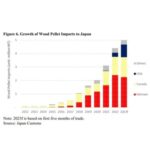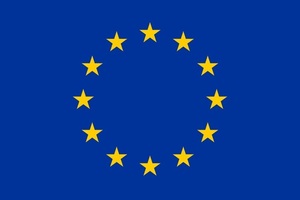Wood pellets can help Biden administration reach climate goals
Energy Disrupter
ADVERTISEMENT
FutureMetrics LLC published a white paper in mid-November describing how co-firing sustainably produced wood pellets at existing power stations can help the Biden administration meet its climate goals.
In the paper, William Strauss, president of FutureMetrics, explains that prior to the Trump administration, the U.S. has promulgated the Clean Power Plan. The CPP would have contributed to the U.S.’s commitments in the Paris Agreement by reducing greenhouse gas (GHG) emissions from electricity generation by approximately 32 percent by 2030, when compared to a 2005 baseline.
Research and analysis completed by FutureMetrics around 2015, when the CPP was promulgated, showed that part of a strategy for reaching those goals should be support for the cofiring of sustainably produced wood pellets at existing coal-fired power plants.
“This is not a novel idea. The U.S. is the world’s largest producer and exporter of sustainably produced wood pellets that are used in power plants in many nations as part of their GHG reduction strategies,” Strauss wrote. “Global trade in pellets that are replacing coal for power generation will be about 24 million [metric tons] in 2020. That is more than a panamax shipload (about 65,000 [metric tons]) every day. Under the CPP, the U.S. would have begun to use the pellet fuel produced in the U.S. for meeting U.S. targets for GHG reduction.”
Although the Trump administration scrapped the CPP, the incoming Biden administration is expected to reverse many of Trump’s policies. “And the new administration is expected to reenergize the U.S.’s commitment to fighting climate change and reducing carbon emissions,” Strauss wrote.
White papers published by FutureMetrics in 2015 clearly showed that a policy that integrates some of the existing coal-fired power stations as part of a decarbonization policy produces a strong net positive for sustaining and creating jobs while effectively and economically lowering net carbon dioxide emissions towards target levels, Strauss said. “Notwithstanding the environmental benefits of such a policy, because of the economic efficiency and the job supporting characteristics of the strategy, even those U.S. policymakers who have supported Trump’s anti-environmental policies should support the strategy outlined in this white paper,” he continued.
A full copy of the white paper can be downloaded from the FutureMetrics website.
















